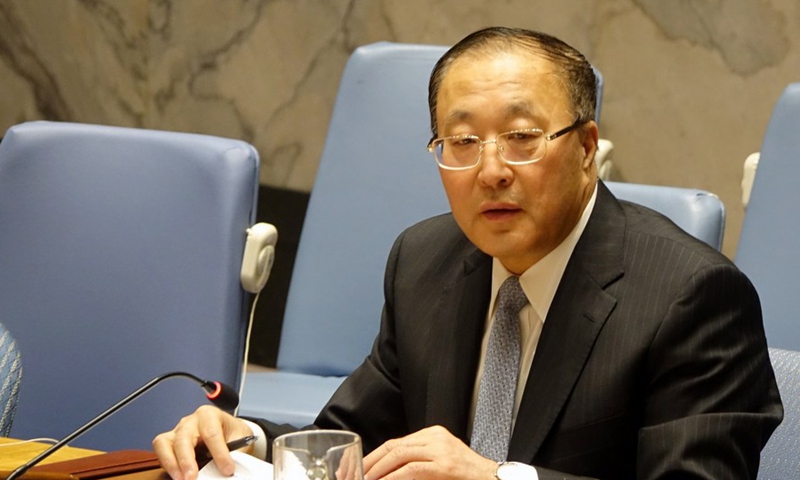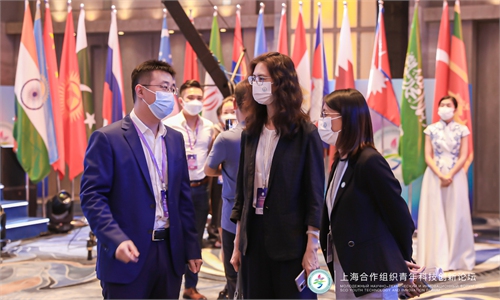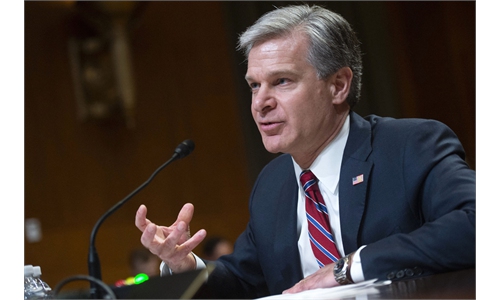China opposes using counter-terrorism for geopolitical self-interests at UN briefing

Zhang Jun Photo: Xinhua
China opposed the conniving and using selective counter-terrorism measure as a tool for geopolitical self-interests, which seriously undermines the effectiveness of international counter-terrorism cooperation, said China's ambassador to the United Nations Zhang Jun on Tuesday at a UN Security Council Briefing on Threats to International Peace and Security Caused by Terrorist Acts.
Zhang said double standards caused by geopolitical considerations and ideological bias must be abandoned in fighting against terrorism, calling for equal attention to be paid to terrorist attacks all around the world, including the successive terrorist attacks launched by ISIS in Afghanistan since the withdraw of foreign troops from the country and the spillover effect of terrorist forces in Afghanistan on the regional security.
The envoy emphasized building counter-terrorism capacity for developing countries, especially African countries, where two of the three most active regional networks of ISIS are. "Countries outside Africa should strengthen communication and coordination with African countries to solve the logistical, financial and capacity building problems in counter-terrorism operations in Africa under the UN framework," the envoy said.
Zhang pointed out the importance of eliminating the root causes of terrorism through political, economic and judicial measures, urging international counter-terrorism cooperation to focus on terrorists' abuses of networks and emerging technologies, the diversification of terrorist financing, and the convergence of terrorist extremism and transnational organized crime.
China will continue to help developing countries, especially those in Africa and Central Asia, enhance their counter-terrorism capacity with practical actions including providing counter-terrorism training, teaching materials and equipment, Zhang added.
Vladimir Voronkov, Under-Secretary-General of the United Nations Office of Counter-Terrorism, also made a speech at the briefing. According to Voronkov, ISIS keeps exploiting conflict dynamics, governance fragilities and inequality, pandemic-related restrictions and abuses digital spaces to organize terrorist attacks and to recruit sympathizers and attract resources.
Voronkov said ISIS relies on a decentralized internal structure consisting of a so-called "general directorate of provinces" and associated "offices" to manage terrorist operations and finances across the globe, especially Africa where the situation has deteriorated further with the expansion of ISIS in Central, Southern and West Africa.
"Such 'offices' operate not only in Iraq and Syria, but also outside the core conflict zone, with the most active ones being reported in Afghanistan, Somalia and the Lake Chad Basin," said Voronkov.
According to a white paper titled China and Africa in the New Era: A Partnership of Equals, since 2019, China has provided strong support to countries in the Sahel region and those bordering the Gulf of Aden and the Gulf of Guinea in combating terrorism in their region through various means such as port calls, joint exercises and training. China also launched assistance programs to train African military personnel in areas of UN peacekeeping missions and combating terrorism under the Belt and Road Initiative.


